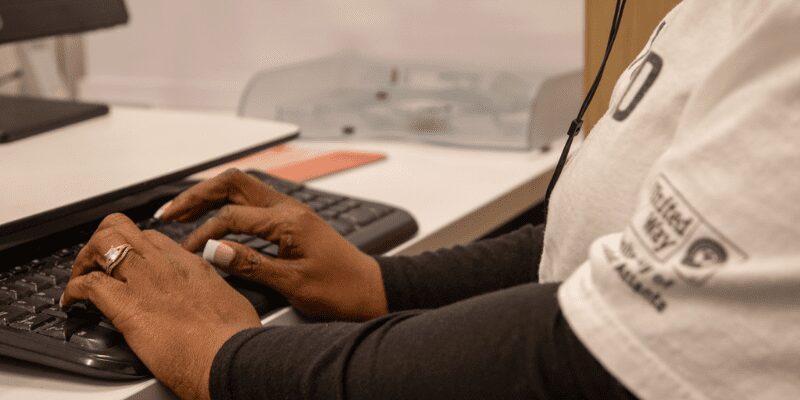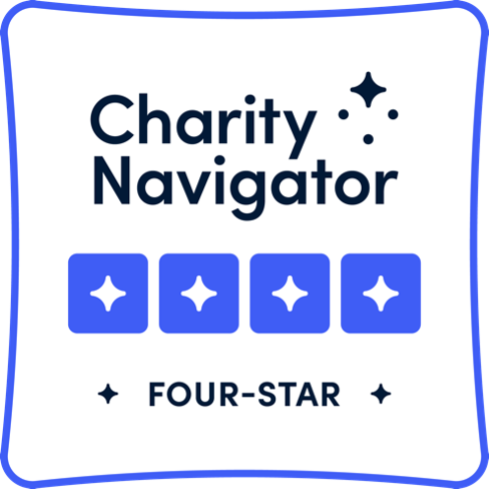Melissa says she didn’t know 211 even existed before taking a job as a Community Connection Specialist just over three years ago.
“I went to Georgia State University, and I had heard of United Way [of Greater Atlanta] in the years prior, but I had no idea that 211 was a thing and I never knew of the need for something like that,” she says.
Melissa was born in Puerto Rico and moved to the Greater Atlanta area when she was 10 years old. She grew up in Atlanta, a bilingual student who earned a bachelor’s degree in psychology, blocks away from an organization she would later work for answering dozens of calls daily in service to a community that had once given her so much.
She wanted to use her knowledge to help relate to and empathize with people who would likely be calling her on one of the most difficult days of their life.
“I think for me the biggest factor that helped me a little bit was my background in psychology, and a lot of it has to do with empathy,” she says. “In the beginning, we did a few months of training, and it’s about learning the systems and the information that we need to know to keep our resources current.
“But we have such a wide span of things that we cover.”
The 211 Contact Center is an information and referral system connecting people to essential services they need—access to food, help paying electrical bills, access to shelter and clothing.
Each call to 211 is filtered to a trained specialist who provides information on services that align to a person’s specific needs. 211 is available 24 hours a day to offer assistance online — Melissa is one of the agents who answers live calls during the week.
“We take calls from metro Atlanta, but we also do for Columbus, Augusta, Athens, Macon — we cover a wide range of things, but in the past year the most in-demand thing has been financial help and housing,”she says.
The COVID-19 pandemic over the past 11 months has put an even greater stress on the need for programs such as 211.
About two weeks into March 2020, cities across the United States began shutting down restaurants, bars, gyms and schools in an attempt to stem the spread of the novel coronavirus. The infectious disease, COVID-19, has infected millions, killed hundreds of thousands and has contributed to mass unemployment across Greater Atlanta and the United States.
With multiple COVID-19 vaccines now in the works, and the distribution of those vaccines yet to be determined, there’s still a large amount of stress put on nonprofits, the private sector and government as we look to provide aid to those families in need.
The need has grown, the calls keep pouring in to 211, but Melissa says it’s important at the end of the day to disconnect and focus on your own mental health.
“In the beginning it was weighing heavy on me,” Melissa says. “You have to find a way to disconnect and manage the stress of calls related to homelessness, suicide or people who are just at the lowest of their low.”
She likes to use aromatherapy, take time to tend to her plants or play with her dog.
“I feel like there’s a couple little things we can do to manage the stress and pull back from it,” she says.
Each year, on Feb. 11 we recognize our 211 Agents with a National 211 Day celebration. It’s a time to honor the efforts of the agents in more than 200 locations in all 50 states and Puerto Rico. The 211 program started more than two decades ago as “First Call to Help” in Atlanta.
Melissa’s job on the frontlines offering help is to provide necessary resources to those who need it, but she offers so much more.
“There’s some situations where you just really feel for them [callers],” she says. “It’s very easy in that moment when you’re talking to them to forget the script and let people vent.
“Sometimes people are skeptical or embarrassed to call and spill their problems, but a lot of people need help—this pandemic was completely unexpected. It’s all about reassuring them and making them feel like I’m here to help and then give them options and let them know what resources are out there.”
Learn more about 211 here.





